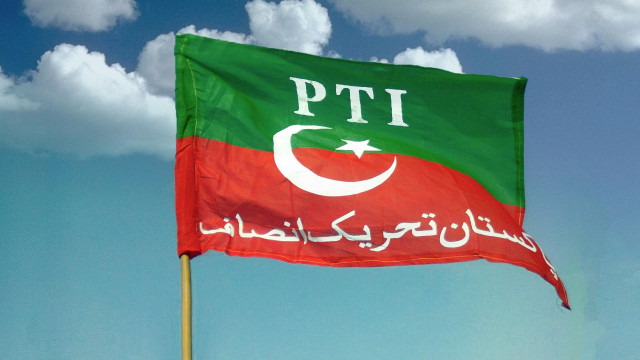Lahore:
Pakistan Tehreek-e-insaf (PTI) denounced the verdicts issued by the anti-terrorist courts, the condemnation of the party leader, Dr. Yasmin Rashid and 40 others at 10 years in prison in the Riots of May 9. The party labeled the politically motivated decision and a blow for judicial integrity.
PTI qualified the decision to disrupt its rally scheduled for August 5, intended to mark the anniversary of the arrest of Imran Khan. Despite the setback, the party has promised to continue its political activities.
Dr. Yasmin, 72, former provincial minister for health and cancer survivors, has been in detention for almost two years. PTI has highlighted images of May 9, in which the demonstrators can be discouraged to get into the body of the body, arguing that the evidence undermines the accusations brought against it.
Party leaders allege that convictions are part of a broader campaign of political reprisals, stressing that the leaders of the PTI who have publicly distinguished themselves from the party were acquitted in similar cases. Those who have remained faithful, they argue, are now faced with disproportionate legal consequences.
PTI also questioned the credibility of the testimony of the witnesses presented in the trial. According to the party, the only witness – a police officer in service – claimed to have heard the founder of PTI, Imran Khan, planning the events of May 9. However, during subsequent procedures via a video link, the witness would have refused to confirm this testimony under oath.
Find out more: Shah Mahmood Qureshi acquitted, Yasmin Rashid sentenced to 10 years in May 9
“This inconsistent and allegedly constrained testimony supports serious concerns concerning the regular procedure,” said the party, adding that different results for those charged in a similar way question the impartiality of the judicial process.
The party has also criticized the current restrictions on access to Imran Khan, which remains incarcerated. PTI says that Khan’s family members, the legal team and party leaders have been denied the rights of visits, in violation of Pakistani prison regulations and international human rights standards.
Under the prison law of 1894 and the rules of the 1978 prison, PTI maintains that Khan, as a former Prime Minister and Prisoner of Class A, is entitled to designated legal and personal privileges. These include access to private neighborhoods, medical treatment, consultation with doctors and personal lawyers, visit rights and sufficient time for the exercise.
The party maintains that these rights are legal rights, not discretionary benefits, and have urged the authorities to guarantee compliance with national and international standards concerning the treatment of prisoners.
Also more: Punjab opposition leader, PTI supporters were sentenced to 10 years in May 9
One day earlier, an anti-terrorism court (ATC) in Lahore acquitted six Pakistani leaders Tehreek-e-insaf (PTI), including Shah Mahmood Qureshi and Hamza Azeem, as part of the May 9 riots.
The court rendered its verdict in the case concerning inflammatory speeches and vandalism at the Sherpao bridge. The court, which had finished the final arguments of defense and prosecution, reserved its decision before announcing the decision.
The verdict said the ATC has acquitted Qureshi, Azeem and four other accused due to insufficient evidence. However, the court recognized 10 other culprits and sentenced 10 years in prison for their role in the violence which followed the arrest of the founder of the PTI, Imran Khan.
ATC Sargodha also condemned the opposition chief to the Punjab assembly, Malik Ahmed Khan Bhachar de PTI, and other party workers at 10 years in prison each. They were found guilty of participation in the creation of disturbances of public order, anarchy and a criminal fire during the riots of May 9, which broke out after the arrest of the founder of the PTI, Imran Khan.
May 9 riots
The riots of May 9 broke out at the national level following the arrest of the former Prime Minister Imran Khan, after which the leaders and workers of the PTI organized demonstrations targeting civil and military installations, in particular the house of Jinnah and the general seat (GHQ) in Rawalpindi.
The soldiers condemned events as “Black Day” and decided to try the demonstrators under the Army Act.
Following the troubles, many members of the PTI were arrested and tried before the military courts. In December, a military court sentenced 25 people, including the nephew of Imran Khan, Hassan Khan Niazi, then sentenced 60 others.
In January, 19 convicts had forgiven their convictions following successful mercy calls, although PTI expressed its dissatisfaction on the limited number of pardons.
The military trials had initially been interrupted following a decision of the Supreme Court, but resumed following the instructions of the court to finalize the matters pending and announce judgments for the persons involved in violent incidents.




